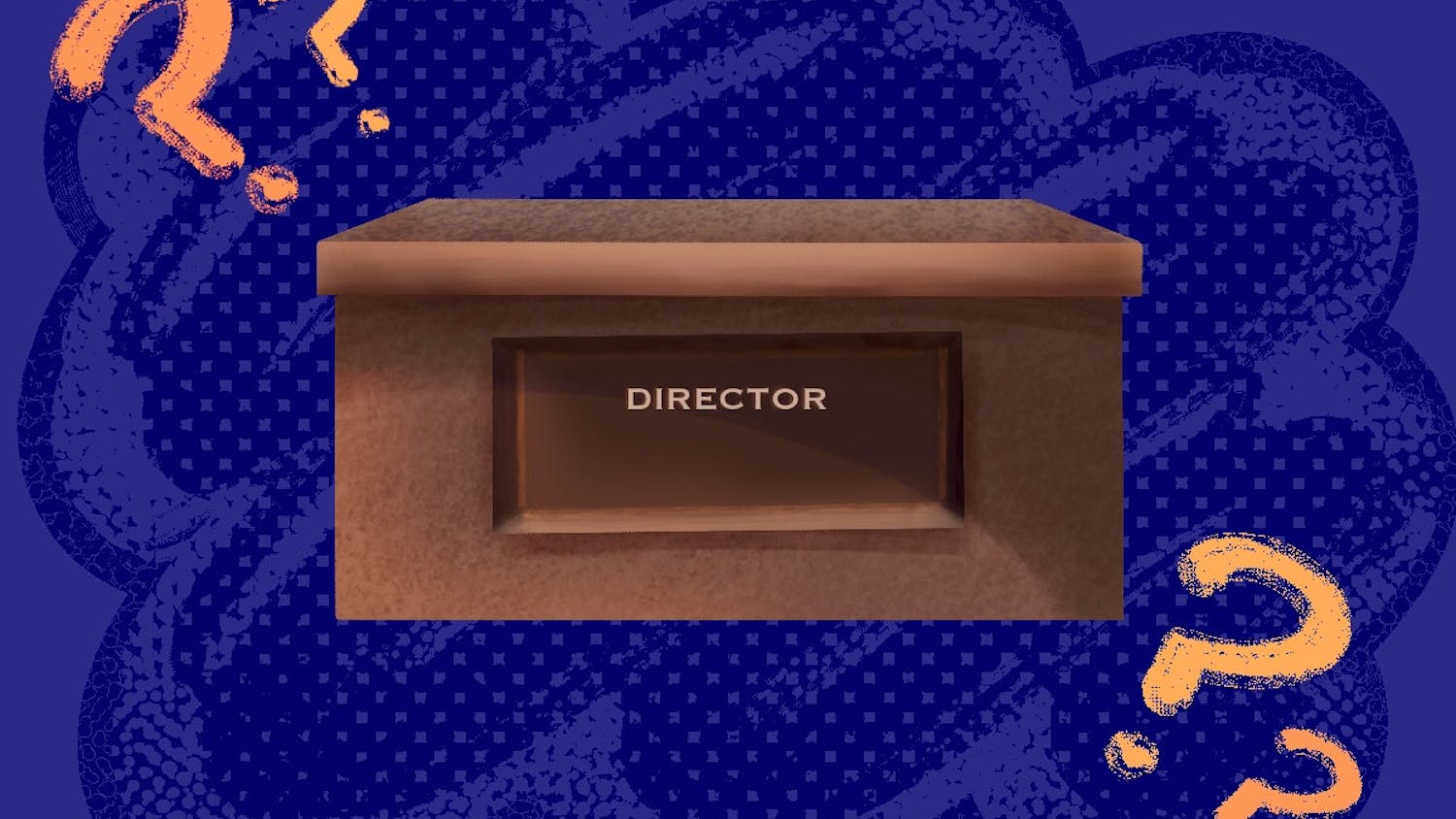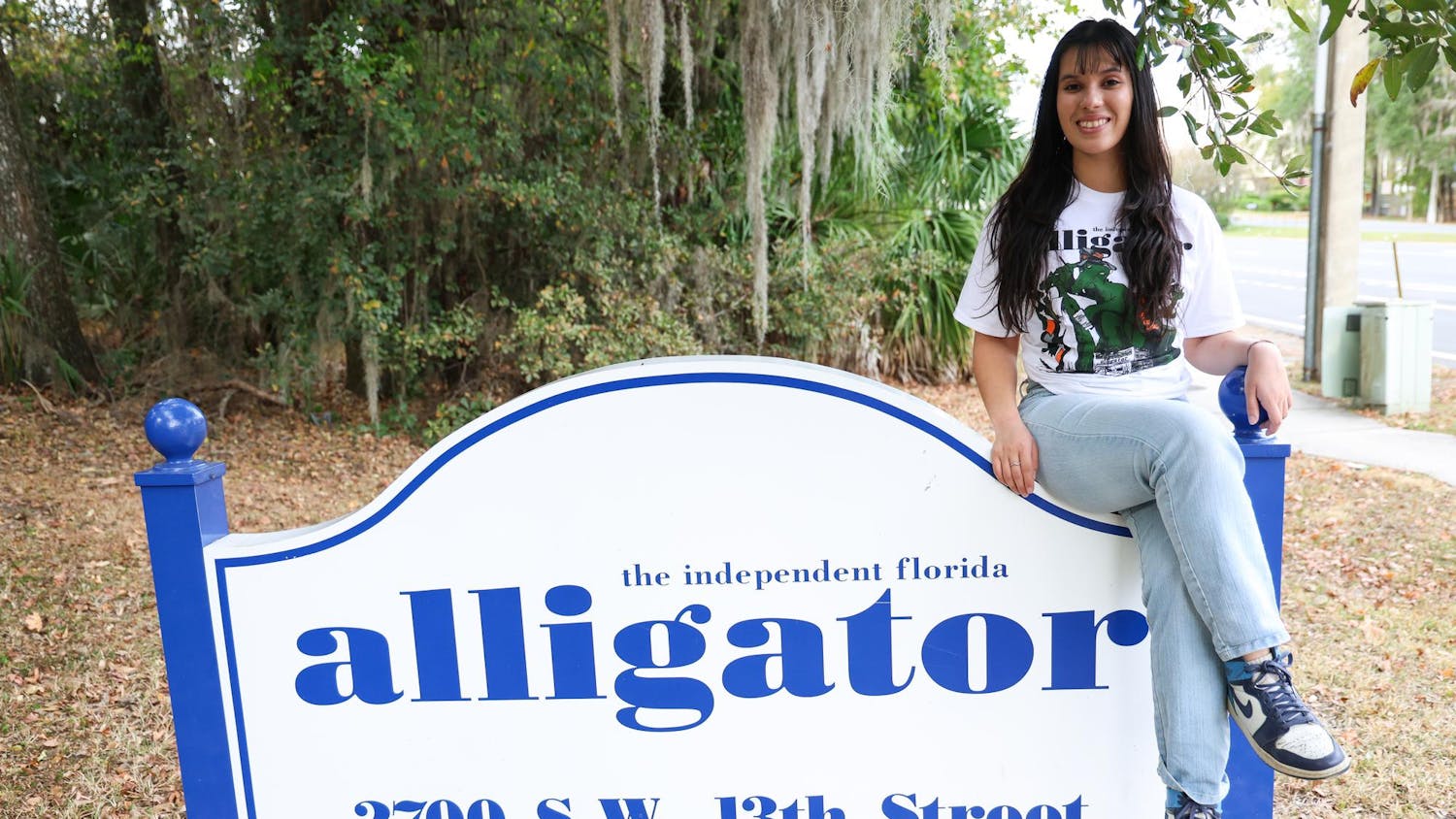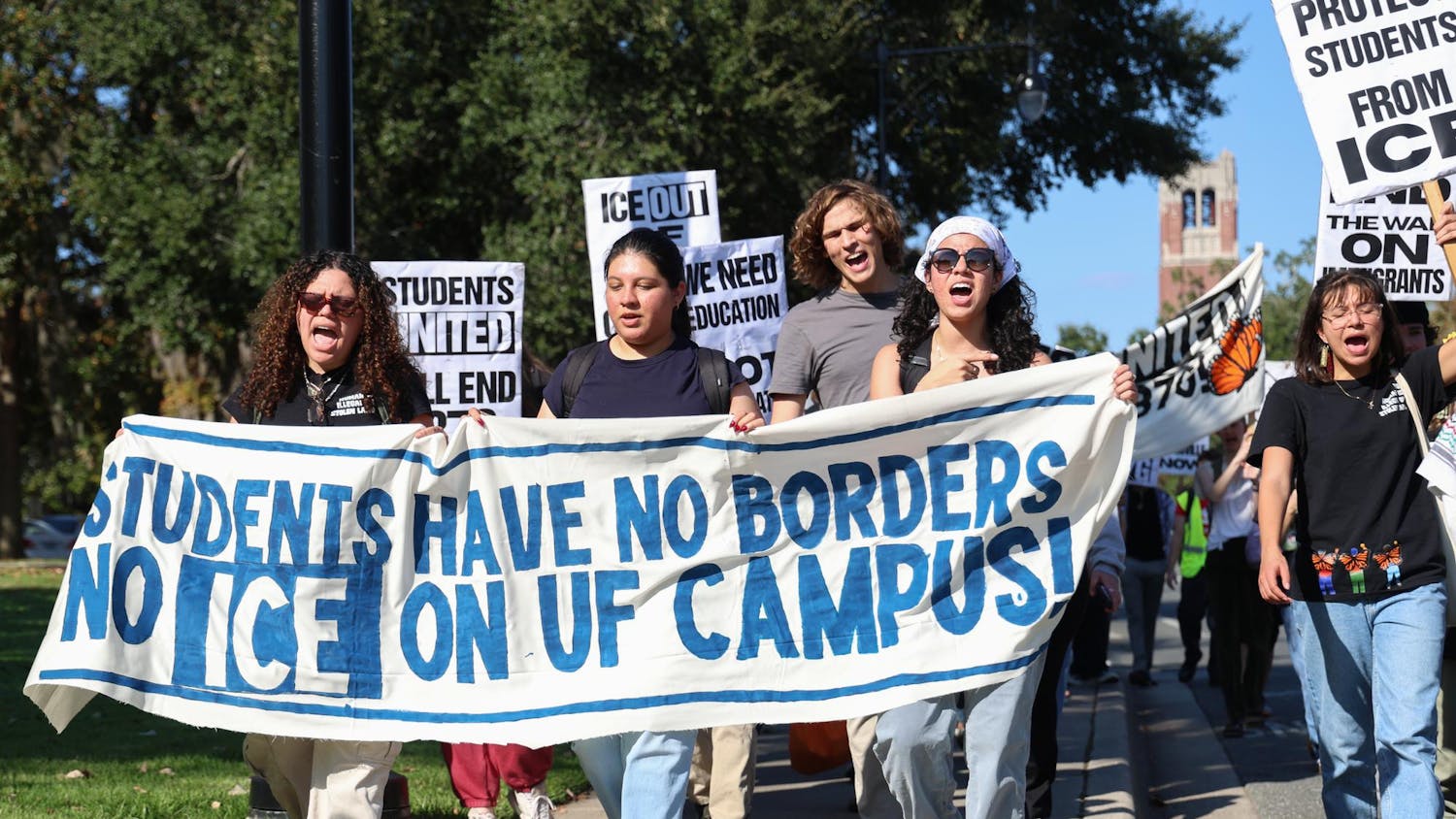The blackface incident last week offers UF an opportunity to consider substantive educational opportunities to diminish the likelihood of these events happening again at a student organization event.
Two weeks ago, members of the UF Association of Black Alumni returned to UF in record numbers for Black Alumni Weekend 2012. It was a blessed weekend during which we welcomed back UF’s first black student, who enrolled in 1958; honored UF’s first black graduate, who made history 50 years ago in 1962; enjoyed a tailgate reunion; and hosted a program in which we paid tribute to alumni athletes who made significant contributions to UF history. The weekend culminated with an awards dinner where we honored distinguished Gator alumni. Most important, the weekend afforded black alumni the opportunity to return to our alma mater and strengthen our Gator bonds. It was a perfect alumni weekend, so I was saddened to receive recent calls and emails from black students and black alumni advising me of the offensive blackface incident at a UF student organization event.
The unavoidable irony is we were just in Gainesville and met two historical figures who predated every other black student who has attended UF. Imagine being the first and only black student enrolled in a university system where school administrators, elected leaders in Tallahassee and the Florida Supreme Court openly denied the Supreme Court’s decisions to keep black students out of the UF. Truth be told, the entire state of Florida denied black students access to higher education, not only UF. Imagine some of the insensitive comments he experienced in 1958, some emanating from racism and hatred, others out of ignorance.
After receiving student and alumni emails about the blackface incident, I could not help but recall the remarks of our keynote speaker, who was a Jewish student in 1958 who befriended the first black student. He provided a firsthand account of the climate in 1958 and recounted how easy it was to become socially isolated in an unwelcoming environment. Blackface in 2012 is not a comforting environment to Gators who are keenly aware of its history and how it was used to caricature and insult black citizens in the late 19th century and most of the 20th century. Many black citizens were even distraught when black citizens were “invited” to blackface to earn a living.
African-American students are expressing their feelings about the blackface incident, and they should. Their great-grandparents experienced indignities and couldn’t say very much about it. Their grandparents challenged the status quo and blazed a path for their parents to follow. Today, Gator students are rightfully articulating why blackface is offensive to many Americans who no longer see racist cartoons, epithets and caricatures as friendly forms of entertainment. I hope administrators, faculty, staff, students and the community will hear them and have an open mind about why a demeaning form of entertainment, which the majority of the population accepted in the 19th century and large part of the 20th century, is unacceptable today.
Black students and black faculty and staff have told me that some leaders in UF’s Multicultural and Diversity Affairs erroneously believe we are in a “postracial society” and are managing the department accordingly. The immediate past director of the Institute of Black Culture concurred with that perception. If true, I am deeply concerned about a leadership philosophy that has not aggressively adopted the breadth and depth of education and programming necessary to help all students appreciate the diverse business world they will navigate after completing their university studies. I am told other incidents have occurred before the blackface incident, and I am moved by the concerns of students and faculty/staff who believe an aggressive, appropriate education campaign is lacking.
I am surprised fellow Gators attending a world-class institution like UF concluded it was a good idea to attend a student organization event in blackface, and I am disappointed they did not consider what that blackface represents to so many of their fellow Gators. I recall when students at that school up north hosted a “pimps and hoes party” — seriously. Students found that event offensive, and students find blackface in 2012 offensive as well.
As a veteran who served in uniform for more than 20 years, I have a deep respect for freedom of speech and expression. The men and women of America’s military have worn the uniform, and many have died so that we remain a free country. The two examples I cited above and wearing a Nazi uniform outside a Holocaust Museum are examples of free speech/expression that are offensive and disappointing to most decent people. We must remember that we live in a free country where even the most controversial forms of political and offensive speech are protected. I am proud to live in a country where the government cannot force me to vote, speak or express myself in the exact manner my neighbor thinks I should.
While the law protects our fellow Gators’ freedom to say or express themselves in this offensive manner, their fellow students and members of the university community do not have to, nor should they, turn a blind eye to this or similar incidents. I commend those students, faculty and staff members who are expressing their opposition to racist cartoons, caricatures and insults within Gator Nation.
To be clear, this is not 1958. For the majority of Gators in the Gator Nation, racist cartoons, epithets and caricatures are not acceptable and will not be dismissed or ignored with a wave of the hand.
Finally, I found that a newspaper published a report that the president of the student organization, and the two students acknowledged this was a mistake, and they publicly apologized. If this is true, I salute these young men for their public apologies. It is difficult to publicly admit to a mistake. It is even more difficult to apologize. The leader of the organization should be commended for making such a statement on behalf of his organization, and the two students showed courage to admit their mistake rather than dig in their heels and refuse to acknowledge why this could be troubling to many of their fellow Gators.
Whether an innocent mistake or deliberate mischief, the university must move aggressively to shape the community environment it wants to read about in newspapers and magazines. This week’s Town Hall meeting will be meaningless and superficial if not followed up with substantive actions to help students better understand the diverse workforce they are about to enter. I am encouraged to see students, faculty/staff and alumni helping to make the university community the thriving place all Gators want it to be.
You can contact her via opinions@alligator.org.





